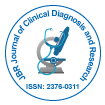Image Open Access
Harlequin Syndrome (Sweating in One Side of the Body)
Bhattacharya SK*Glocal Hospital, Krishnanagore, West Bengal, India
- *Corresponding Author:
- Bhattacharya SK
Glocal Hospital
Krishnanagore, West Bengal, India
Tel: 03212-42339
E-mail: sujitkbhattacharya@yahoo.com
Received Date: March 14, 2016; Accepted Date: April 19, 2016; Published Date: April 22, 2016
Citation: Bhattacharya SK (2016) Harlequin Syndrome (Sweating in One Side of the Body). J Clin Diagn Res 4:I101. doi: 10.4172/2376-0311.1000I101
Copyright: © 2016 Bhattacharya SK. This is an open-access article distributed under the terms of the Creative Commons Attribution License, which permits unrestricted use, distribution, and reproduction in any medium, provided the original author and source are credited.
Visit for more related articles at JBR Journal of Clinical Diagnosis and Research
Abstract
A male patient aged 45 years presented in March 2016 at the Glocal Hospital, Krishnanagore, West Bengal, India, with the complaint of sweating only in the left half of the body, particularly in the face, while the other half does not sweat (Figure 1). He had noticed this phenomenon for the last several years. BP was 120/85 mmHg. There were no rashes or itching in the body. Routine examination of blood, urine and stool did not reveal any abnormalities. The thyroid function tests of both the patients were normal. The patient was not diabetic or hypertensive.
Introduction
A male patient aged 45 years presented in March 2016 at the Glocal Hospital, Krishnanagore, West Bengal, India, with the complaint of sweating only in the left half of the body, particularly in the face, while the other half does not sweat (Figure 1). He had noticed this phenomenon for the last several years. BP was 120/85 mmHg. There were no rashes or itching in the body. Routine examination of blood, urine and stool did not reveal any abnormalities. The thyroid function tests of both the patients were normal. The patient was not diabetic or hypertensive.
Sweating is primarily controlled by the sympathetic nervous system. Sweat on one side of my body (face) only is known as Harlequin syndrome. Treatment is most probably conservative. One usually learns to leave with it; however, routine blood tests for Diabetes, Thyroid function tests and any other relevant tests should be done to make sure that nothing else is going on.
--Relevant Topics
- Back Pain Diagnosis
- Cardiovascular Diagnosis
- Clinical Diagnosis
- Clinical Echocardiography
- COPD Diagnosis
- Diabetes Diagnosis
- Diagnosis Methods
- Diagnosis of cancer
- Diagnosis of CNS
- Diagnosis of Diabetes
- Diagnostic Products
- Diagnostics Market Analysis
- Heart diagnosis
- Immuno Diagnosis
- Infertility Diagnosis
- Medical Diagnostic Tools
- Preimplementation Genetic Diagnosis
- Prenatal Diagnostics
- Ultrasonography
Recommended Journals
Article Tools
Article Usage
- Total views: 46001
- [From(publication date):
October-2016 - Apr 02, 2025] - Breakdown by view type
- HTML page views : 44925
- PDF downloads : 1076

